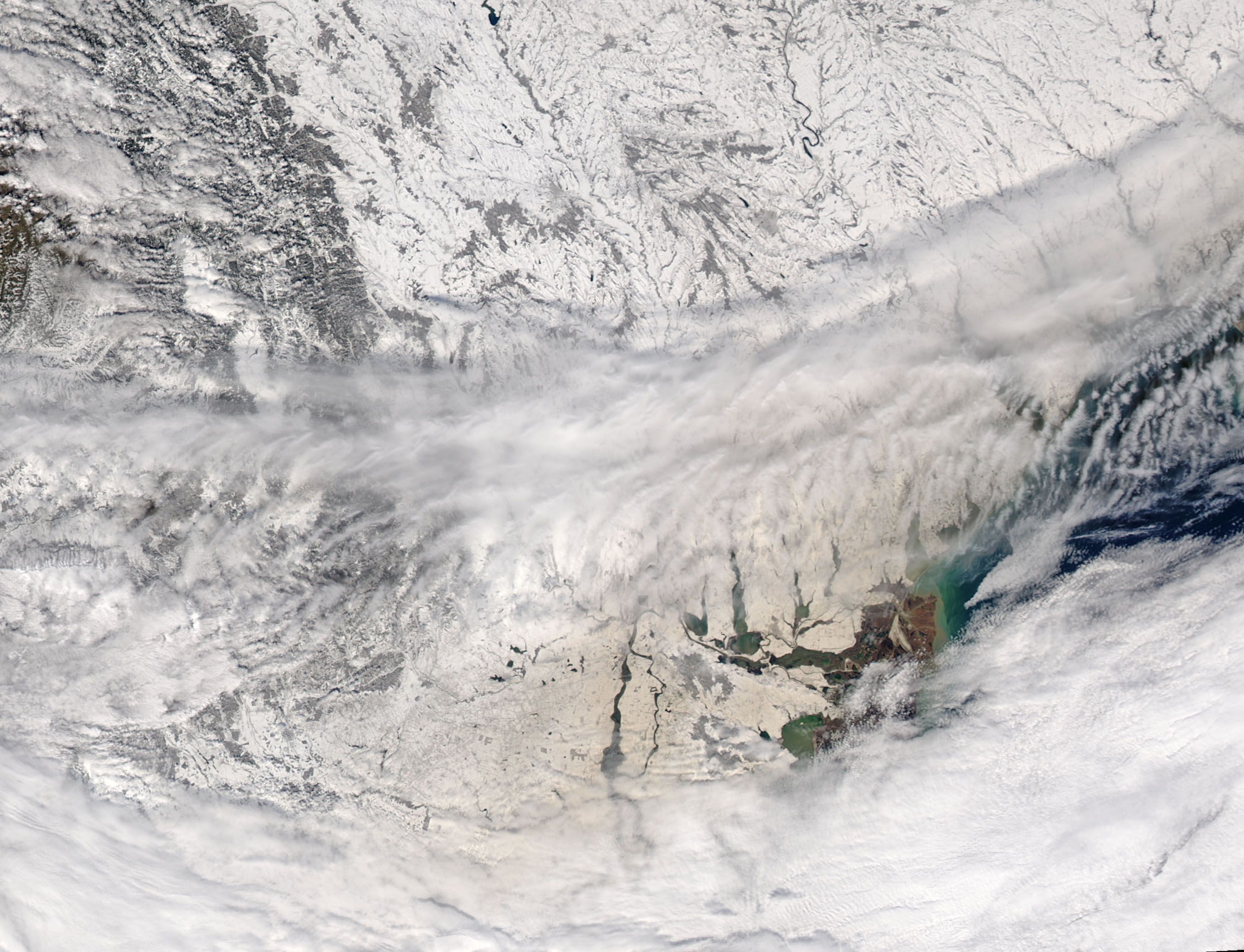Maybe this is what it would be like to ski on Mars.
In late March 2018, the people of Eastern Europe and Russia found their snow cover had a distinctly orange tint. The color came from vast quantities of Saharan dust that was picked up by strong winds, lofted over the Mediterranean Sea, and deposited on Bulgaria, Romania, Moldova, Ukraine, and Russia. Skiers in the Caucasus Mountains snapped photos that looked like they could have come from the Red Planet.
Maybe this is what it would be like to ski on Mars.
In late March 2018, the people of Eastern Europe and Russia found their snow cover had a distinctly orange tint. The color came from vast quantities of Saharan dust that was picked up by strong winds, lofted over the Mediterranean Sea, and deposited on Bulgaria, Romania, Moldova, Ukraine, and Russia. Skiers in the Caucasus Mountains snapped photos that looked like they could have come from the Red Planet.
The Moderate Resolution Imaging Spectroradiometer (MODIS) on NASA’s Aqua satellite acquired a natural-color image of the dusty snow in Eastern Europe on March 24, 2018. The MODIS instrument on the Terra satellite acquired the second image, a natural-color view of dust from North Africa blowing across the Mediterranean Sea on March 26, 2018. Dust storms were still raging on March 27, as shown by another Terra image of the Black Sea region.
In Greece, Crete, and Cyprus, the airborne particles significantly reduced visibility for days, and people described tasting dust as they walked outside, news media reported. Authorities cautioned children, the elderly, and people with respiratory diseases to stay indoors as much as possible. According to several news accounts, the Athens Observatory called this event one of the largest dust deposits on record in Greece.
Read more at NASA Earth Observatory
Image Credits: Jeff Schmaltz, LANCE/EOSDIS Rapid Response




